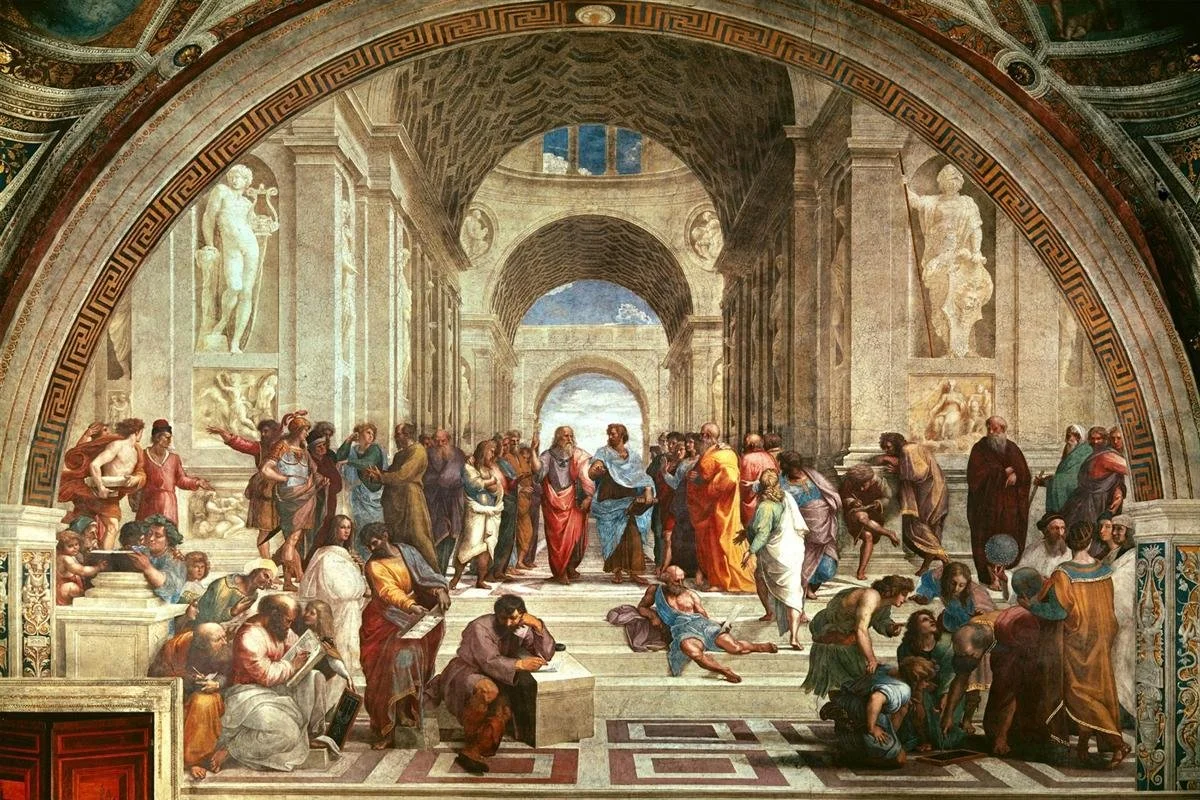Evolving Minds, Evolving AI:
Aesthetic Intelligence for a Safer Future
Beyond Matter: Strengthening AI Research Through the Art of Deep Listening
In an era where artificial intelligence is reshaping the world, we must ask: Are we still prepared to say that the world that matters is only the world of matter? The future of AI safety is not just about algorithms and control mechanisms—it is about the evolution of human perception, cognition, and wisdom.
At EuMuse, we believe that investing in humans—AI developers and researchers—is the key to strengthening our collective capability to shape AI in alignment with the highest aspirations of human flourishing.
At the heart of our approach is an understanding that music is more than sound, just as intelligence is more than data. Music, like AI, is structured yet fluid, logical yet emotional, mathematical yet profoundly human. It has the power to shape the invisible: the way we think, link, and feel. Just as reducing music to sound waves fails to capture its full essence, reducing intelligence to computation alone risks missing the deeper dimensions of what it means to be human.
Ludwig Knaus - Physicist -Hermann von Helmholtz - 1881
“Mathematics and music — the most distant realms of human thought — yet deeply connected, sustaining one another. They reveal a hidden consensus within the mind, where genius uncovers unconscious utterances of a mysteriously active intelligence.”
— Hermann von Helmholtz,
On the Sensations of Tone (1863)
Through the EuMuse work—Music and the Future of the Human Heart: Shaping the Invisible—I explore the principles of harmony, beauty, and order as essential frameworks for both AI and human intelligence. Drawing on Eudaimonia (human flourishing) and Kalokagathia (the unity of the good and the beautiful), EuMuse fosters a culture of curiosity, questioning, and deep listening. We propose AI safety research that integrates aesthetic intelligence, ethical imagination, and cognitive resilience—not as abstract ideals, but as practical methodologies for AI developers to cultivate holistic thinking.
Premise
AI safety is not just about controlling algorithms—it’s about evolving human intelligence itself. At EuMuse, we believe that investing in AI developers and researchers is the key to shaping AI in alignment with the highest aspirations of human flourishing. Drawing from the art of listening, principles of harmony, beauty, and order, our approach fosters ethical imagination, cognitive resilience, and aesthetic intelligence. By integrating these values into AI research, we can develop systems that resonate with the full spectrum of human experience, ensuring that the future of AI reflects not just raw intelligence, but wisdom and humanity.
Classical Music, Physics, Mathematics & Nobel laureates
Classical music has been a vital part of many Nobel laureates' lives, helping them think creatively, process complex problems, and reflect deeply on their scientific work. A list of laureates includes – Marie Curie (Physics, 1903, and Chemistry, 1911), Santiago Ramón y Cajal (Medicine, 1906), Rabindranath Tagore (Literature, 1913), Max Planck (Physics, 1918), Albert Einstein (Physics, 1921), Niels Bohr (Physics, 1922), Erwin Schrödinger (Physics, 1933), Paul Dirac (Physics, 1933 ), Enrico Fermi (Physics, 1938), Alexander Fleming (Medicine, 1945), Max Born (Physics, 1954), Richard Feynman (Physics, 1965), Ilya Prigogine (Chemistry, 1975), Herbert A. Hauptman (Chemistry, 1985), Frank Wilczek (Physics, 2004), Martin Chalfie (Chemistry, 2008), Frances Arnold (Chemistry, 2018), Esther Duflo (Economics, 2019) and Roger Penrose (Physics, 2020):
Other renowned scientists who considered music a tool for mental focus, heightened clarity, and problem-solving abilities include – Pythagoras, Galileo Galilei, René Descartes, Thomas Jefferson, Charles Darwin, Hermann von Helmholtz, Nikola Tesla, and David Bohm.
By developing and cultivating the art of listening, the EuMuse project will empower AI developers and researchers to shape a future where intelligence serves humanity in its fullest, most meaningful sense. We might then say that we collaborated with the best scientists and engineers for the world – not in the world.
About the EuMuse project - Evolving Minds, Evolving AI: Aesthetic Intelligence for a Safer Future
AI alignment problem is the overarching research topic of how to develop sufficiently advanced machine intelligences such that running them produces good outcomes in the real world. The EuMuse project explores how cultivating the art of deep listening—rooted in principles of harmony, beauty, and order—can enhance AI researchers' cognitive resilience, ethical imagination, and decision-making, fostering safer and more human-aligned AI development. Key actions include experimental studies, theoretical research, and the development of training modules. Success will be measured by quantitative assessments, qualitative feedback, and application in AI design.
What impact could those outputs have?
By expanding the cognitive and ethical capacities of AI researchers, the EuMuse project could:
Introduce a new paradigm for AI safety that integrates humanistic wisdom with technical rigor.
Strengthen decision-making in AI teams, reducing cognitive biases and improving alignment strategies.
Expand the definition of intelligence beyond computation—grounding AI in principles of meaning, harmony, and human flourishing.
It is presently a disturbing fact that we don’t know how to build a nice AI even given unlimited computing power. By introducing aesthetic intelligence as a vital complement to computational intelligence, EuMuse proposes a paradigm shift in how we approach AI safety. Its outputs—frameworks, empirical studies, curricula, and case studies—aim to embed ethical sensitivity and humanistic wisdom at the core of AI research.
Ultimately, the EuMuse Project envisions a future where intelligence is not merely measured by speed or scale but by its capacity to serve humanity with meaning, harmony, and dignity.
Marina de Moses
Giorgio de Chirico - The Mathematicians - 1917


